- About
-
Advocacy
- Submit Legislative Proposals to the ILA Public Policy Committee
- Advocacy Policies and Procedures
- More Than a Building
- Census 2020 Resources
- Creating or Changing Illinois State Library Law
- Illinois Minimum Wage Resources
- Intro to Property Taxes for IL Libraries
- ILA Public Policy Principles
- Legislative Issues
- Libraries and Immigration Enforcement
- Making Your Case
- Ready, Set, Advocate
- TIFs and Public Library Districts in Illinois
- Top Ten Advocacy Tips
- Unite Against Book Bans in Illinois
-
Committees
- Frequently Asked Questions (FAQ) about ILA Committees
- Advocacy Committee
- Awards Committee
- Conference Program Committee, 2025
- Conference Program Committee, 2026
- Diversity Committee
- Finance Committee
- Fundraising Committee
- ILA Reporter Advisory Committee
- Illinois Libraries Present Committee
- Illinois Public Library Standards Committee
- Intellectual Freedom Committee
- iREAD Committee
- Nominating Committee
- Public Policy Committee
- Reaching Forward North Committee
- Reaching Forward South Committee
- Events
-
Forums
- Frequently Asked Questions (FAQ) about ILA Forums
- Human Resources & Administration Forum (HRAF)
- Illinois Association of College & Research Libraries Forum (IACRL)
- Library Trustee Forum (LTF)
- Marketing Forum (MF)
- Resources & Technical Services Forum (RTSF)
- Retired Members Forum
- Small and Rural Libraries Forum (SARL)
- Students and New Professionals Forum (SANP)
- Young Adult Services Forum (YASF)
- Youth Services Forum (YSF)
- Initiatives
- Membership
- Publications
This bibliography represents books challenged, restricted, removed, or banned in 2010 and 2011 as reported in the Newsletter on Intellectual Freedom from May 2010-May 2011. (A date prior to May 2010 indicates the controversy began earlier, but continues into 2011.)
Alexie, Sherman
The Absolutely True Diary of a Part-Time Indian
Thorndike Press; Little, Brown
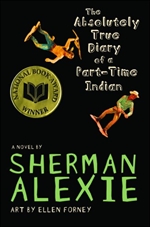
Banned in the Stockton, Mo. School District (2010) because of violence, language, and some sexual content. Retained in the Helena, Mont. School District (2011) despite a parent’s objection that the book contained “obscene, vulgar and pornographic language.” This New York Times bestseller won the National Book Award in 2007 in the “Young People’s Literature” category, and is on many recommended book lists.
Source: Newsletter on Intellectual Freedom, July 2010, p. 156; Sept. 2010, pp. 198-99; Nov. 2010, pp. 241, 243-44; Mar. 2011, pp. 73-74.
Anderson, Laurie Halse
Speak
Farrar, Straus, and Giroux
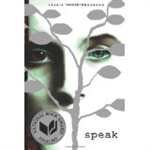
Challenged in the Republic, Mo. schools (2010) because it is “soft-pornography” and “glorifies drinking, cursing, and premarital sex.”
Source: Newsletter on Intellectual Freedom, Nov. 2010, pp. 243-44.
Baker, Larry
The Flamingo Rising
Ballantine

Challenged on the Stevenson High School, Lincolnshire, Ill. summer reading list (2010) because a parent complained that “a sexual encounter depicted in the novel was definitely something you could consider X-rated.”
Source: Newsletter on Intellectual Freedom, Mar. 2011, p. 53.
Baskin, Julia; Lindsey Newman, Sophie Pollitt-Cohen, and Courtney Toombs
The Notebook Girls: Four Friends, One Diary, Real Life
Warner

Reclassified from the young adult section to the adult nonfiction section at the Waukee, Iowa Public Library (2011) because of a complaint citing “foul language” and “cussing.” The book includes frank discussions about adolescent sex, drinking, and drug use. Body image, sexual orientation, and the 9/11 terrorist attacks are also addressed.
Source: Newsletter on Intellectual Freedom, Jan. 2011, p. 7.
Brashares, Ann
Forever in Blue, the Fourth Summer of the Sisterhood
Delacorte

Challenged at the Theisen Middle School in Fond du Lac, Wis. (2010) by a parent who believes that the book has inappropriate subject matter for children. “Some (of the characters in the book) are sexually active, and alcohol is part of their recreation.”
Source: Newsletter on Intellectual Freedom, July 2010, pp. 156, 176.
Burroughs, Augusten
Running with Scissors
St. Martin

Challenged as a suggested reading in a class where juniors and seniors earn college credit in Hillsborough County, Fla. (2010). Four high schools – Plant, Middleton, Hillsborough, and Bloomingdale – voted to keep the book and place a “Mature Reader” label on the front cover. Three high schools – Sickles, Robinson, and Lennard – will require parental consent. Gaither High School and Riverview High School voted to ban the book. Riverview’s report stated: “This book has extremely inappropriate content for a high school media center collection. The book contained explicit homosexual and heterosexual situations, profanity, underage drinking and smoking, extreme moral shortcomings, child molesters, graphic pedophile situations and total lack of negative consequences throughout the book.”
Source: Newsletter on Intellectual Freedom, May 2010, pp. 103-4.
Butler, Dori Hillestad
My Mom’s Having a Baby
Albert Whitman & Company

Challenged in the Carrollton, Tex. Library (2011) because it is inappropriate for children. The book won an Editor’s Choice award from Booklist in 2005 and was named a Top Ten Sci-Tech book for Youth by Booklist. Retained at the Hillsborough County, Fla. Public Library System (2011). Published in 2005, the book tells of a little girl named Elizabeth who is curious about childbirth and how her mother became pregnant. Throughout the book’s thirty pages, little Elizabeth learns about these topics in great detail.
Source: Newsletter on Intellectual Freedom, May 2011, pp. 95, 116.
Cast, P.C., and Kristin Cast
Betrayed
St. Martin’s Griffin

Challenged in the North Star Borough School District, Fairbanks, Alaska high school libraries (2011) because, “It simply causes kids to think even more of things sexual.” The teenage vampire novel is part two of the “House of Night” series.
Source: Newsletter on Intellectual Freedom, May 2011, p. 93.
Chbosky, Stephen
The Perks of Being a Wallflower
Pocket Books

Challenged, but retained, at the Clarkstown, N.Y. North High School (2011) despite a parent’s complaint about the teen coming-of-age novel, which deals graphically with teenage sex, homosexuality, and bestiality.
Source: Newsletter on Intellectual Freedom, May 2011, pp. 97-98; July 2011, p. 161.
Chopin, Kate
The Awakening
Duffield; Oxford University Press; Capricorn Books; Simon; Prometheus Books

Challenged at the Oconee County, Ga. Library (2011) because the cover of the book -- a novel about a woman whose desires run against the family structure of the 1890s -- shows a painting of a woman’s bare chest and upset the patron. The novel was first published in 1899.
Source: Newsletter on Intellectual Freedom, Jan. 2011, p. 7.
Collins, Suzanne
The Hunger Games
Scholastic

Challenged and presented to the Goffstown, N.H. school board (2010) by a parent claiming that it gave her eleven-year-old nightmares and could numb other students to the effects of violence.
Source: Newsletter on Intellectual Freedom, Jan. 2011, pp. 10-11.
Crutcher, Chris
Staying Fat for Sarah Byrnes
Greenwillow

The Belleville, Wis. School Board (2011) decided to keep a book that’s required reading for high school freshmen in the curriculum despite a parent’s complaint that the book was “pornography” and its language was “pervasively vulgar.” Published in 1993, the novel has been read by ninth-grade students at Belleville High School for eight years. The book deals with topics of abortion, sexuality, and the power of religion.
Source: Newsletter on Intellectual Freedom, Jan. 2011, p. 13; Mar. 2011, p. 75.
Ehrenreich, Barbara
Nickel and Dimed: On (Not) Getting by in America
Holt

Challenged at the Easton, Penn. School District (2010), but retained despite a parent’s claim the book promotes “economic fallacies” and socialist ideas, as well as advocating the use of illegal drugs and belittling Christians. Removed from the Bedford, N.H. School District’s required Personal Finance course (2010) after two parents complained about the “book’s profanity, offensive references to Christianity, and biased portrayal of capitalism.” The nonfiction account is about Ehrenreich’s struggles to make a living on multiple minimum-wage jobs in America. A checklist has been proposed that Bedford school officials would use to rate books and other instructional materials.
Source: Newsletter on Intellectual Freedom, May 2010, p. 107; Mar. 2011, pp. 53-54; May 2011, pp. 96-97.
Foer, Jonathan Safran
Extremely Loud and Incredibly Close
Houghton

Challenged in the Richland, Wash. School District (2010). Used in a tenth-grade honors language arts class at Hanford High, the book tells the story of Oskar Schell, a young boy whose father died in the 9/11 World Trade Center attacks. The book contains profanity, sex, and descriptions of violence.
Source: Newsletter on Intellectual Freedom, July 2010, pp. 156-57.
Frank, Anne
Anne Frank: The Diary of a Young Girl
Doubleday
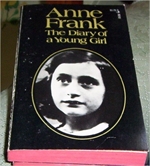
Challenged at the Culpeper County, Va. public schools (2010) by a parent requesting that her daughter not be required to read the book aloud. Initially, it was reported that officials decided to stop assigning a version of Anne Frank's diary, one of the most enduring symbols of the atrocities of the Nazi regime, due to the complaint that the book includes sexual material and homosexual themes. The director of instruction announced the edition published on the fiftieth anniversary of Frank's death in a concentration camp will not be used in the future despite the fact the school system did not follow its own policy for handling complaints. The remarks set off a hailstorm of criticism online and brought international attention to the 7,600-student school system in rural Virginia. The superintendent said, however, that the book will remain a part of English classes, although it may be taught at a different grade level.
Source: Newsletter on Intellectual Freedom, Mar. 2010, pp. 57-58; May 2010, p. 107.
Gruen, Sara
Water for Elephants
Algonquin Books

Removed from a spring break elective course at the Bedford, N.H. School District (2010) after a parent complained about the novel’s sexual content. The complainant further suggested that the school only allow “youth versions” of particular books or organize a parental review system over the summer that would look at books that students need parental permission to read. A checklist has been proposed that Bedford school officials would use to rate books and other instructional materials.
Source: Newsletter on Intellectual Freedom, May 2011, pp. 96-97.
Guterson, David
Snow Falling on Cedars
Harcourt

Retained in college-level classes at Richland, Wash. high schools (2011). Teachers said the book was selected for the curriculum twelve years ago because it deals with prejudice against Japanese-Americans in the Pacific Northwest during and shortly after World War II.
Source: Newsletter on Intellectual Freedom, Mar. 2011, p. 74.
Haddon, Mark
The Curious Incident of the Dog in the Night-time
Doubleday
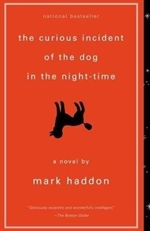
Removed from the Lake Fenton, Mich. summer reading program (2010) after parents complained about its “foul language.” The book is about an autistic child who investigates the death of a neighborhood dog. It was a joint winner of the 2004 Boeke Prize and won the 2003 Whitbread Book of the Year award.
Source: Newsletter on Intellectual Freedom, Sept. 2010, p. 200.
Hahn, Mary Downing
The Dead Man in Indian Creek
Clarion Books; Sandpiper

Challenged at the Salem-Keizer School District, Oreg. elementary schools (2010) because of the drugs and drug smuggling activities in the book. The book was previously challenged in 1994 in the same school district because of graphic violence, examples of inappropriate parenting, and because it was too frightening for elementary students. The book has won awards from the International Reading Association, the Children’s Book Council, and the American Library Association.
Source: Newsletter on Intellectual Freedom, May 2010, pp. 105-6.
Halpern, Julie
Get Well Soon
Square Fish

Challenged at the Theisen Middle School in Fond du Lac, Wis. (2010) by a parent who believes that the book contains inappropriate subject matter for children.
Source: Newsletter on Intellectual Freedom, May 2010, p. 127; July 2010, pp. 156, 176.
Horowitz, Anthony
Snakehead
Philomel Books

Challenged at the Westside Elementary School library in Brooksville, Fla. (2011) because “drug and weapons smuggling and gang violence is too much for any child to have access to at that age.”
Source: Newsletter on Intellectual Freedom, Mar. 2011, p. 52.
Huxley, Aldous
Brave New World
Harper
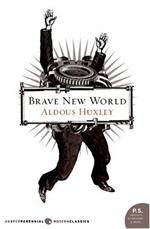
Challenged at North County High School in Glen Burnie, Md. (2010) by a small group of parents who circulated a petition to have the book removed from use by county schools over concerns about explicit sexual content. The 1932 novel depicts a dystopian future where science and technology have run amok resulting in a morally bankrupt society.Retained on the list of approved materials that Seattle, Wash. high school teachers may use in their language arts curriculum (2011). A parent had complained that the book has a “high volume of racially offensive derogatory language and misinformation on Native Americans. In addition to the inaccurate imagery, and stereotype views, the text lacks literary value which is relevant to today’s contemporary multicultural society.”
Source: Newsletter on Intellectual Freedom, Jan. 2011, pp. 10, 12-13; Mar. 2011, pp. 74-75.
Kehret, Peg
Stolen Children
Dutton

Challenged, but retained at the Central York, Pa. School District (2011) despite a parental concern that the book “was too violent.” The book centers on the kidnapping of thirteen-year-old Amy and her three-year-old babysitting charge. The kidnappers videotape the pair and send the DVDs to their parents for ransom. Amy works to send clues through the videos to help police find them.
Source: Newsletter on Intellectual Freedom, Mar. 2011, p. 52; May 2011, p. 114.
The Koran

Burned (2011) by Evangelical pastor Terry Jones at his Gainesville, Fla. church, the Dove World Outreach Center. In response, thousands of protesters overran the United Nations compound in Mazar-I-Sharif, Afghanistan, killing at least twelve people.
Source: Newsletter on Intellectual Freedom, July 2011.
Lelyveld, Joseph
Great Soul: Mahatma Gandhi and His Struggle With India
Knopf

Banned in parts of India (2011). A Santa Cruz, Calif. educational organization, Foundation for Excellence, canceled an event planned in honor of the Pulitzer Prize-winning author (2011). The foundation provides scholarships for students in India and canceled the event after the biography hinted a homosexual relationship between Gandhi and a German named Hermann Kallenbach.
Source: Newsletter on Intellectual Freedom, July 2011, p. 141.
Mackler, Carolyn
Vegan Virgin Valentine
Candlewick Press

Challenged at the Quitman, Tex. Junior High library (2011) by a parent who described one scene as “on the verge of pornography.”
Source: Newsletter on Intellectual Freedom, Jan. 2011, p. 8.
Madaras, Lynda, and Dane Saavedra
What’s Happening to My Body? Book for Boys: A Growing-up Guide for Parents & Sons
Newmarket Press

Banned from twenty-one school libraries in Buda, Tex. (2011) after a parent’s complaint. The book includes definitions of rape, incest, sexual assault, and intercourse.
Source: Newsletter on Intellectual Freedom, Jan. 2011, p. 8.
Mathabane, Mark
Kaffir Boy: The True Story of a Black Youth’s Coming of Age in Apartheid South Africa
Macmillan

Challenged, but retained, at the San Luis Obispo, Calif. High School (2010) despite containing a passage that graphically details sexual assault. The book had been taught at the school for more than a decade without controversy.
Source: Newsletter on Intellectual Freedom, Jan. 2011, p. 29.
McKissack, Fredrick, Jr.
Shooting Star
Atheneum

Retained in the Broken Arrow, Okla. Sequoyah Middle School library (2010) despite a parent’s concern about several swear words in the text. The book is about a high school football player who, after becoming discouraged about his size, starts using steroids to bulk up, resulting in negative effects on his life and personality.
Source: Newsletter on Intellectual Freedom, Nov. 2010, p. 257.
Monette, Paul
Writers’ Voice: Selected from Borrowed Time: An AIDS Memoir
Signal Hill Publications

Pulled from circulation at the Cheatham, Tenn. Middle School (2011). The anthology contains a selection from Paul Monette’s Borrowed Time: An AIDS Memoir, chronicling how Monette coped with a lover’s death from AIDS. The book talks frankly about past promiscuity and uses profanity. School policy was changed after the complaint. The previous policy kept challenged books available in the library until two weeks after the review process was complete. Now the book is removed and a decision is made within forty-eight hours.
Source: Newsletter on Intellectual Freedom, May 2011, p. 95.
Moore, Patrick
Tweaked: A Crystal Meth Memoir
Kensington Books

Removed from the North Middlesex, Mass. Regional High School (2010) because the book contains “’F’ words and instructions on how to make certain types of illegal drugs.”
Source: Newsletter on Intellectual Freedom, Nov. 2010, p. 243.
Morrison, Toni
Song of Solomon
Knopf; NAL

Retained in the Franklin Central High School’s Advanced Placement English curriculum in Indianapolis, Ind. (2010), despite some parents’ concerns about the novel’s language and sexual content.
Source: Newsletter on Intellectual Freedom, July 2010, p. 177.
Myracle, Lauren
ttyl
Amulet Books

Retained in the Ponus Ridge Middle School library in Norwalk, Conn. (2010). While some critics decry its style as “grammatically incorrect,” most who take exception point to its “foul language,” sexual content, and questionable sexual behavior. It is the first book written entirely in the format of instant messaging – the title itself is a shorthand reference to “talk to you later.”
Source: Newsletter on Intellectual Freedom, May 2010, p. 127.
Ockler, Sarah
Twenty Boy Summer
Little, Brown

Challenged in the Republic, Mo. schools (2010) because it is “soft-pornography” and “glorifies drinking, cursing, and premarital sex.”
Source: Newsletter on Intellectual Freedom, Nov. 2010, pp. 243-44.
Plum-Ucci, Carol
The Body of Christopher Creed
Harcourt

Challenged, but retained, in the Appleton, Wis. Area School District ninth-grade curriculum (2010) despite concerns about its age appropriateness.
Source: Newsletter on Intellectual Freedom, Jan. 2011, pp. 30-31.
Salinger, J. D.
The Catcher in the Rye
Bantam; Little, Brown

Challenged, but retained, in the Martin County, Fla. School District (2010) despite a parent’s concern about inappropriate language.
Source: Newsletter on Intellectual Freedom, Nov. 2010, p. 243; Mar. 2011, p. 73.
Sapphire (Ramona Lofton)
Push
Vintage

Challenged on an extracurricular reading list in the Horry County, S.C. school library (2011). The 1996 novel is based on the story of Precious Jones, an illiterate sixteen-year-old, who grows up in poverty. Precious is raped by her father, battered by her mother, and dismissed by social workers. The story follows Precious, pregnant with a second child by her father, through her journey of learning how to read and be on her own. The novel was made into a critically acclaimed movie, Precious, in 2009, which received six Oscar nominations, including Best Picture, for the 82nd Academy Awards and Sundance Film Festival praise.
Source: Newsletter on Intellectual Freedom, May 2011, p. 94.
Semencic, Carl
Pit Bulls and Tenacious Guard Dogs
Thomasson Grant & Howell

Banned at the Logan, Australia West Library (2011) because it contains information on restricted dog breeds. In 2001, under Local Law 4 (Animal Management) the Logan City Council placed a ban on, among others, pit bull terriers and American pit bulls. Therefore, Logan City Council libraries do not stock literature on any of the prohibited breeds.
Source: Newsletter on Intellectual Freedom, May 2011, p. 118.
Shaffer, Paul
We’ll Be Here for the Rest of Our Lives
Anchor

Challenged, but retained, at the Mitchell, S. Dak. Public Library (2010) despite a resident’s concern that the book was objectionable with its “too frank depictions and discussions of sex and sexual matters.” Written by the longtime leader of David Letterman's band, the book is filled with show business stories and tales of Schaffer’s upbringing in Canada.
Source: Newsletter on Intellectual Freedom, Sept. 2010, p. 218.
Sixx, Nikki
The Heroin Diaries: A Year in the Life of a Shattered Rock Star
VH1

Pulled from an optional, supplemental reading list in an Advanced Placement psychology course in Brooksville, Fla. Hernando High School (2010) because of complains about explicit language, descriptions of drug use, and photos. Written by the former bassist for the heavy metal band Mötley Crüe, it is a cautionary tale about the dangers of drug use.
Source: Newsletter on Intellectual Freedom, Nov. 2010, pp. 242-43.
Smith, Jeff
Bone
Scholastic

Retained in the Rosemount, Minn. elementary school libraries (2010) despite a parent’s concern that the series includes smoking, drinking, and gambling in its graphics and storyline. The series is rated suitable for fourth grade and up, has won several awards, and received positive reviews from national publications, including Time, which touted the series as the “best all-ages graphic novel ever published.”
Source: Newsletter on Intellectual Freedom, July 2010, p. 175.
Sones, Sonya
One of Those Hideous Books Where the Mother Dies
Simon & Schuster

Challenged, but retained, at the Theisen Middle School in Fond du Lac, Wis. (2010) despite a parent’s belief that the book's "sexual content was too mature for eleven- to fourteen-year-olds.” The book has won several awards, including being named a 2005 Best Book for Young Adults by the American Library Association.
Source: Newsletter on Intellectual Freedom, Mar. 2010, p. 54; May 2010, pp. 127-28; July 2010, pp. 156, 176.
Sonnie, Amy, ed.
Revolutionary Voices: A Multicultural Queer Youth Anthology
Alyson Books

Banned by the Rancocas Valley Board of Education from the Mount Holly, N.J. High School library shelves (2010) after a local conservative group expressed concern that the book was too graphic and obscene. The local group, part of the 9/12 Project, a nationwide government watchdog network launched by the talk-radio and television personality Glenn Beck, called for the banning of three books, all dealing with teenage sexuality and issues of homosexuality. The two other titles challenged, but retained were: Love and Sex: Ten Stories of Truth edited by Michael Cart, and The Full Spectrum: A New Generation of Writing about Gay, Lesbian, Bisexual, Transgender, Questioning, and Other Identities edited by David Levithan and Billy Merrell. Removed from the Burlington County, N.J. public library (2010) after a member of Glenn Beck’s 9/12 Project complained about Sonnie’s book. Named as one of the best adult books for high school students by School Library Journal in 2001, the book was called “pervasively vulgar, obscene, and inappropriate.”
Source: Newsletter on Intellectual Freedom, July 2010, pp. 154-56; Sept. 2010, pp. 199-200.
Vonnegut, Kurt
Slaughterhouse-Five
Dell; Dial

Challenged in the Republic, Mo. schools (2010) because it is “soft-pornography” and “glorifies drinking, cursing, and premarital sex.”
Source: Newsletter on Intellectual Freedom, Nov. 2010, pp. 243-44.
Walker, Margaret
Jubilee
Houghton

Challenged at the Jacksonville, Ill. High School (2010) by a pastor who said he found the fictionalized story of the author’s grandmother, who was born as a slave in Georgia an “offensive” and “trashy” novel about the way of life in the Old South. “We believe it is to promote superiority for white people and to step on black people and make them feel inferior.” The Ku Klux Klan challenged the novel in South Carolina in 1977 because it produces “racial strife and hatred.”
Source: Newsletter on Intellectual Freedom, May 2010, pp. 104-5.
WritersCorps
Paint Me Like I Am: Teen Poems
HarperTempest

Retained in the combined middle and high school library in the North Fond du Lac, Wis. School District (2010), provided it has a label designating it as appropriate for high school students. Younger students could also access the book with prior parental permission. A parent asked the school district to reconsider the book due to mature language.
Source: Newsletter on Intellectual Freedom, May 2010, pp. 128-29.

 iREAD Summer Reading Programs
iREAD Summer Reading Programs Latest Library JobLine Listings
Latest Library JobLine Listings